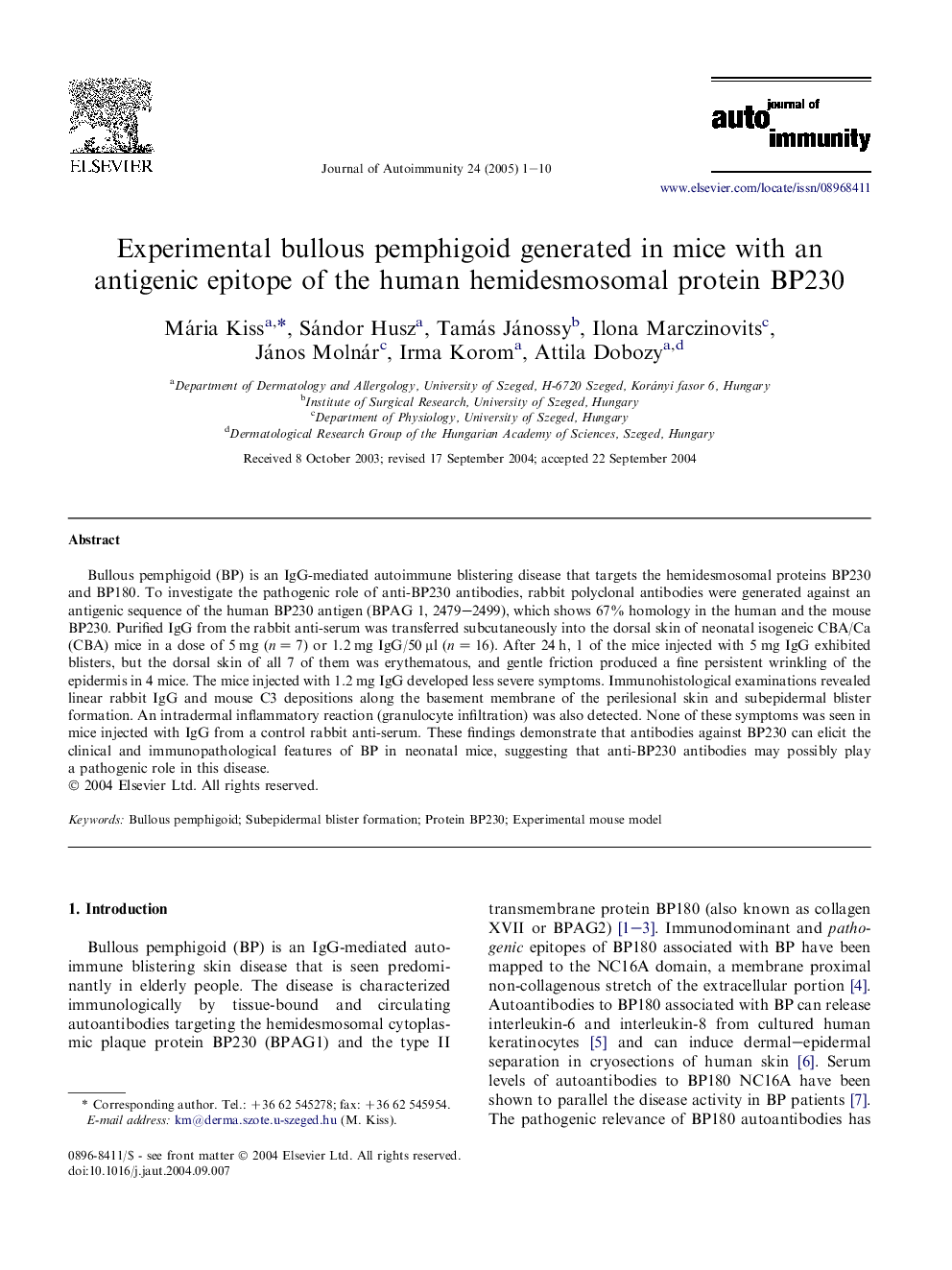| Article ID | Journal | Published Year | Pages | File Type |
|---|---|---|---|---|
| 9267828 | Journal of Autoimmunity | 2005 | 10 Pages |
Abstract
Bullous pemphigoid (BP) is an IgG-mediated autoimmune blistering disease that targets the hemidesmosomal proteins BP230 and BP180. To investigate the pathogenic role of anti-BP230 antibodies, rabbit polyclonal antibodies were generated against an antigenic sequence of the human BP230 antigen (BPAG 1, 2479-2499), which shows 67% homology in the human and the mouse BP230. Purified IgG from the rabbit anti-serum was transferred subcutaneously into the dorsal skin of neonatal isogeneic CBA/Ca (CBA) mice in a dose of 5 mg (n = 7) or 1.2 mg IgG/50 μl (n = 16). After 24 h, 1 of the mice injected with 5 mg IgG exhibited blisters, but the dorsal skin of all 7 of them was erythematous, and gentle friction produced a fine persistent wrinkling of the epidermis in 4 mice. The mice injected with 1.2 mg IgG developed less severe symptoms. Immunohistological examinations revealed linear rabbit IgG and mouse C3 depositions along the basement membrane of the perilesional skin and subepidermal blister formation. An intradermal inflammatory reaction (granulocyte infiltration) was also detected. None of these symptoms was seen in mice injected with IgG from a control rabbit anti-serum. These findings demonstrate that antibodies against BP230 can elicit the clinical and immunopathological features of BP in neonatal mice, suggesting that anti-BP230 antibodies may possibly play a pathogenic role in this disease.
Related Topics
Life Sciences
Immunology and Microbiology
Immunology
Authors
Mária Kiss, Sándor Husz, Tamás Jánossy, Ilona Marczinovits, János Molnár, Irma Korom, Attila Dobozy,
